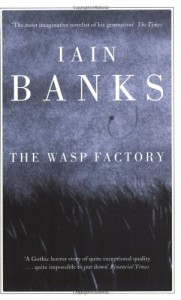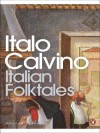7
Followers
8
Following
Sacred Space
Joseph Campbell said: "Your sacred space is where you can find yourself again and again." This is my sacred space, in the midst of a jumble of books of no particular denomination in a cavernous dimly-lit library hall, whiling my time away among the musty pages while the world busy destroying itself outside. You are welcome, fellow reader, to share this space.
 Question: Are violence and cruelty innate to human nature – or is man inherently civilised?
Question: Are violence and cruelty innate to human nature – or is man inherently civilised?This is the question posed by that most controversial and loved/ hated novel, The Lord of the Flies. The same question is posed in this book too. However, whereas the canvas was a huge one there, in The Wasp Factory, the reader is viewing things under a microscope. Rather like watching bugs.
From chapter one onwards, Iain Banks invites us into the head of Frank Cauldhame, who is one seriously disturbed teenager. He has been blessed with a reclusive scientist father with an obsession for memorising the dimensions of various objects in the house: a mother who abandoned him: and a crazy elder brother who sets dogs on fire and stuffs maggots into children’s mouths for fun. Moreover, he has had an “accident” which has left him without a penis. To add to all this, Frank’s birth has never been registered with the authorities, making him officially nonexistent. Talk about teen angst!
As the story opens, Frank’s elder brother, Eric, has escaped from the asylum where he had been incarcerated and is slowly making his way home. His father is hopeful that he will be picked up before he reaches there: but Frank has his doubts. He knows that Eric is clever enough to dodge his stalkers, and that he’ll eventually arrive.
Against this backdrop of Eric’s impending arrival, the novel unfolds as a sort of interior monologue of the protagonist. Frank is anything but your ordinary teenager. Just listen to some of his private musings:
”Two years after I killed Blyth I murdered my young brother Paul, for quite different and more fundamental reasons than I’d disposed of Blyth, and then a year later I did for my young cousin Esmeralda, more or less on a whim.
That’s my score to date. Three. I haven’t killed anybody for years, and don’t intend to ever again.
It was just a stage I was going through.”
This callousness and lack of any empathy towards the world in general, accompanied by an astute brain and a technological bend of mind, and a strangely savage and ritualistic personal religion makes Frank Cauldhame an extremely interesting (though not likeable) protagonist. Frank kills animals and keeps their heads arranged on stakes on the beach, which he calls “The Sacrifice Poles”. He keeps the skull of the dog which mutilated him (subsequently killed by his father) in a disused World War II bunker, surrounded by the heads and skulls of his kills, and conducts strange rituals like burning wasps with a mixture of sugar and weedkiller. But his greatest achievement is the killing machine which he has devised, which he calls “The Wasp Factory”.
The Wasp Factory is made out of an old clock face, over which the wasp is left to wander at its will: it cannot fly away because the top is covered. Near each of the numerals, trapdoors have been created which will open if the wasp steps on it and dump it into a glass corridor, at the end of which is a method of death devised by its maker, which includes (to enumerate some) getting skewered, chopped up, eaten by a spider, drowned in urine, or burnt by petrol. The method of the wasp’s death gives information to Frank on a particular question posed to the Factory.
As the novel progresses, and Eric gets nearer and nearer to Frank, the story of who and what Frank is slowly unfolds. It is an eerie tale, with hardly any “normal” people in it: and towards the end, when the reason for Eric’s insanity is revealed, it is sufficiently disturbing, bordering on the disgusting. However, Frank’s big secret at the end fell flat for me, even though it proved impossible to guess.
The pluses of the novel are the narrative tone and curiously disturbing and nightmarish world created by the author. Even though the story is full of violent deaths, murder and mayhem, Banks uses a lot of wildly fantastic elements and overblown descriptions of bizarre deaths to distance us from the horror and focus more on the absurd: for example, Frank kills Esmeralda by tying her to a kite and making her float away over the sea! And Frank’s dispassionate narration is sometimes downright funny, as he uses the classic British understatement for his gruesome subject matter: so we find ourselves guiltily enjoying the colourful deaths of the members of the Cauldhame clan.
Banks uses the crazed brain of his protagonist to mock the sacred cows of the modern world: religion, technology and politics. See one of his political musings:
”Often I’ve thought of myself as a state; a country or, at the very least, a city. It used to seem to me that the different ways I felt sometimes about ideas, courses of action and so on were like the different political moods countries go through. It has always seemed to me that people vote in a new government not because they actually agree with the politics but just because they want a change. Somehow they think that things will be better under the new lot. Well, people are stupid, but it all seems to have more to do with the mood, caprice and atmosphere than carefully thought-out arguments."
He has just described Indian democracy to a T!
Also, the similarities between religious and scientific rituals are made so disturbingly clear that we catch ourselves asking the question: have we become worshippers of a God of Technology? Is Frank’s ingenious contraption for killing wasps, and the elaborate rituals that go along with it, much different from the intercontinental ballistic missiles developed by nations and the “rituals” surrounding the launching of the same?
Ultimately, this is the biggest plus point of the book – its ability to make us think about the inherent nature of man and the whole insane and unholy relationship between his great pastimes: technology, religion and politics. It captures the “big” problems and scales them down to microscopic level, that of a crazed teenager on a lonely Scottish isle.
Why then only the three stars?
Well, the ending. The “big” secret. It was so pointless. I could not make out what Banks was trying to convey to the readers with this revelation. That brought down the book from four to three stars for me.
But I would still recommend it to readers who are not very queasy about the subject matter of what they read. Though disturbing, the novel is powerful, and will stay with you after you have finished. One added advantage: it’s a quick and easy read.




